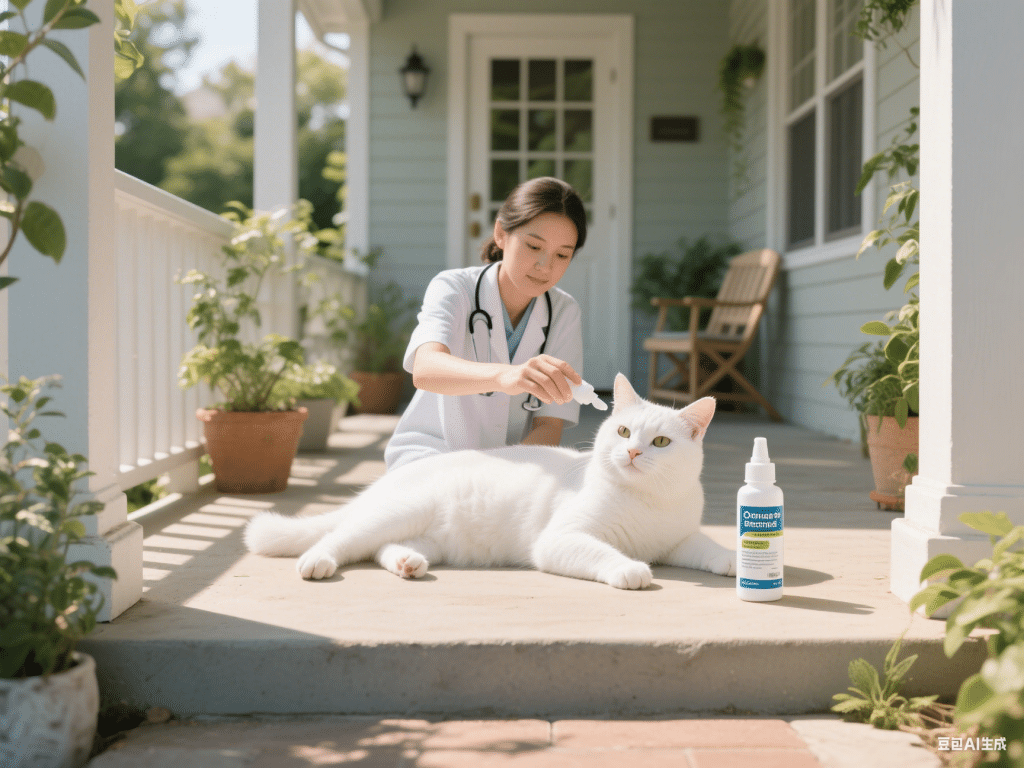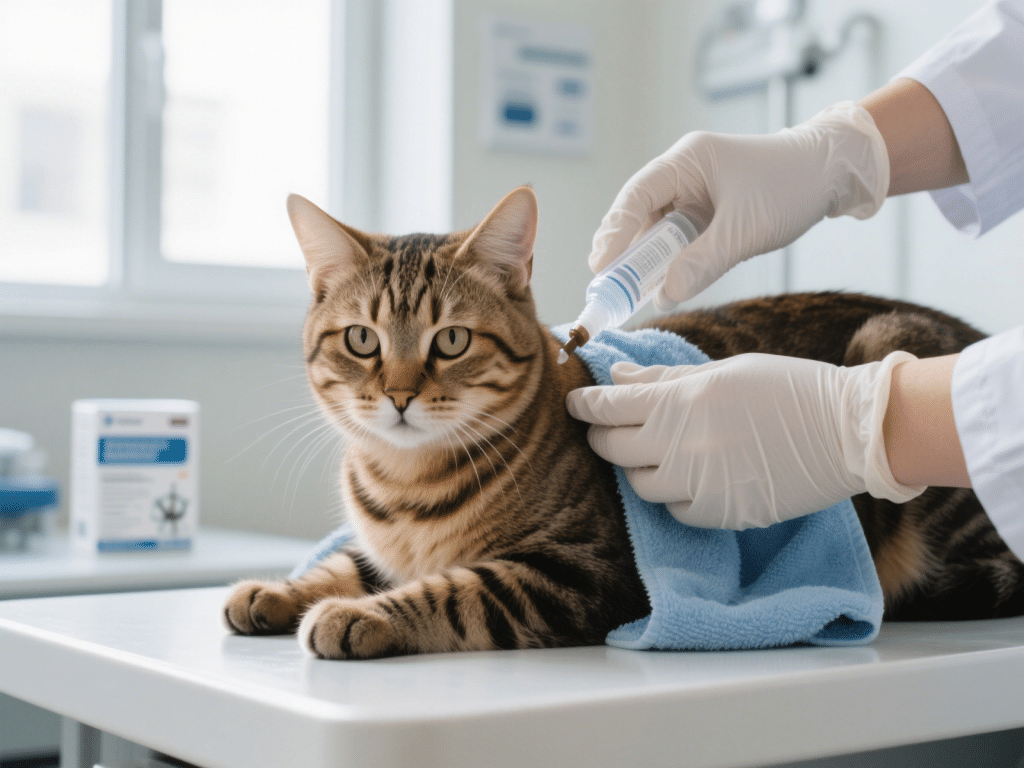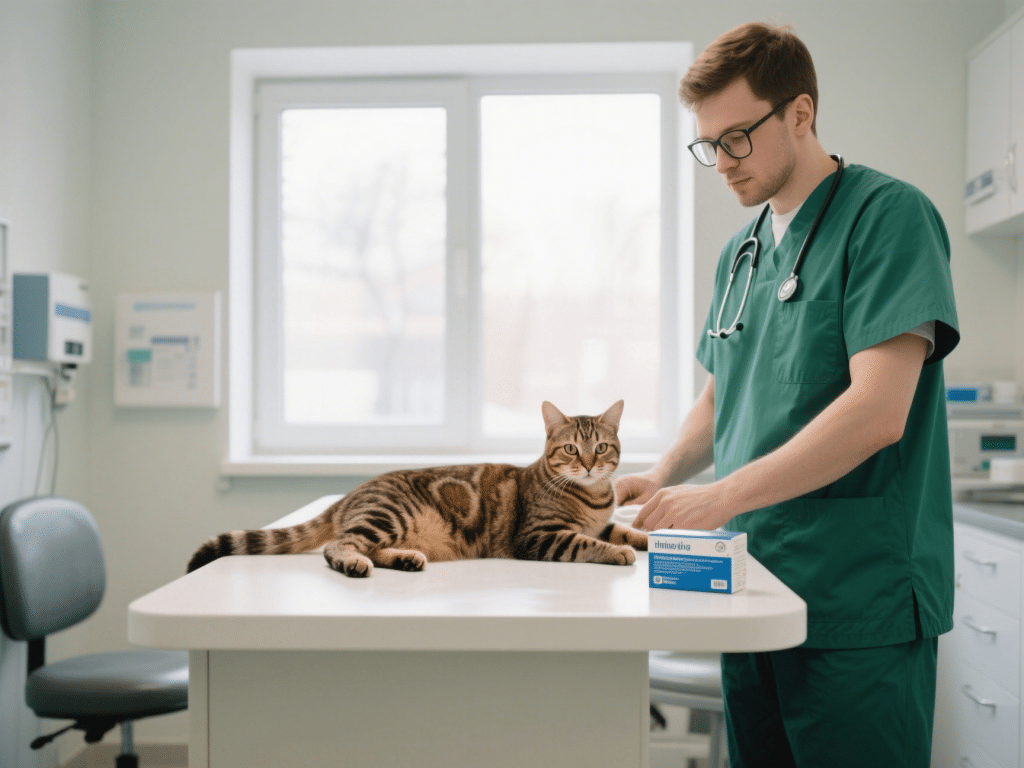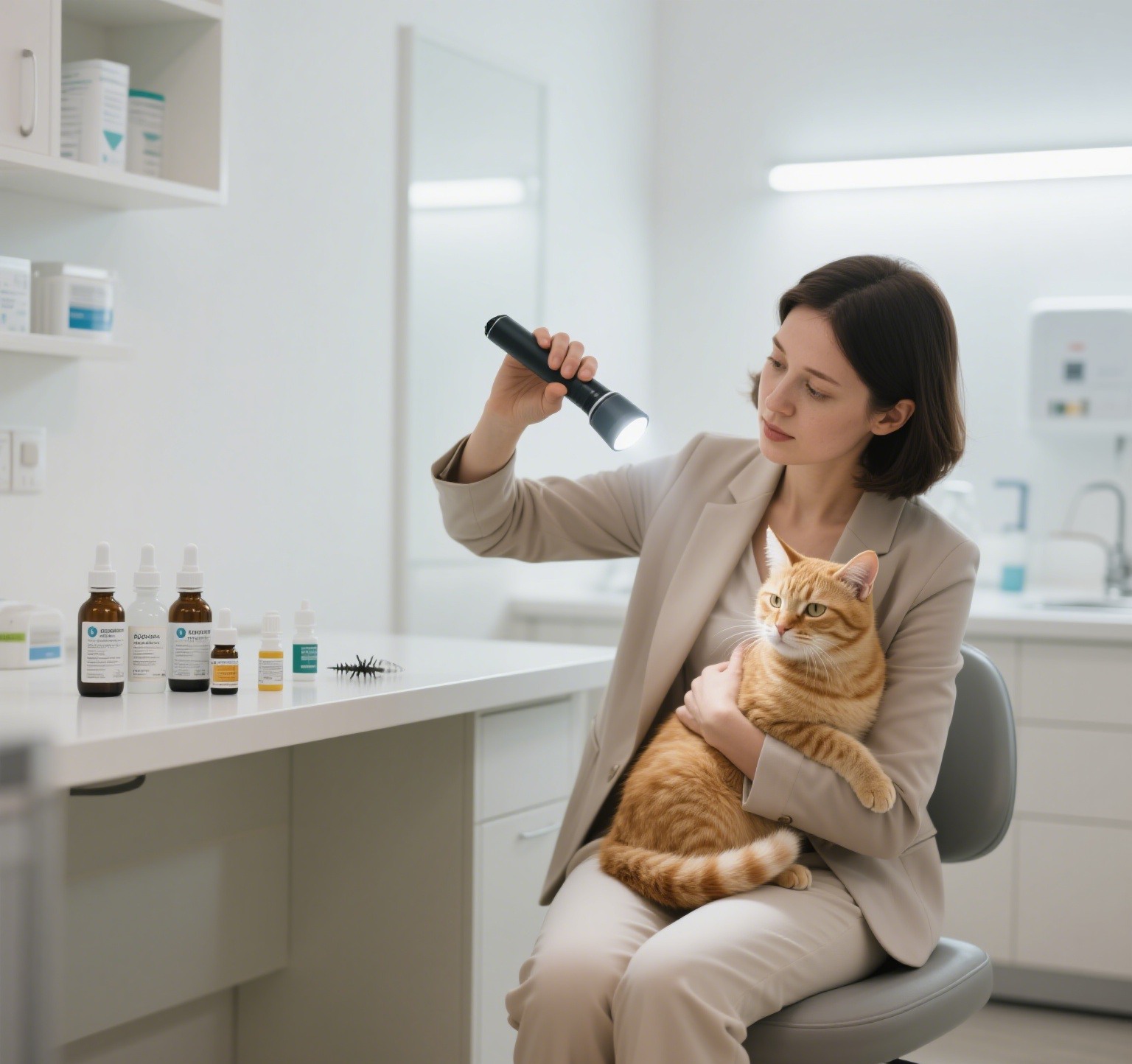Comparing Spot-On vs Pill Dewormers for Cats: Pros and Cons
Introduction
Cat owners often face the choice between spot-on (topical) and pill (oral) dewormers. Each method offers unique benefits and challenges. Understanding these differences helps owners select the most practical and effective approach for feline parasite prevention.
1. Spot-On Dewormers: Pros and Cons
Pros
Ease of Administration: Apply directly to the skin between the shoulder blades; no struggle with the cat’s mouth.
Dual Protection: Many products (e.g., selamectin, eprinomectin) also cover fleas, ear mites, and certain external parasites.
Reduced Stress: Ideal for cats that refuse oral medications; minimizes handling time.
Cons
Variable Absorption: Heavy grooming soon after application may reduce efficacy.
Potential Skin Reactions: Some cats develop localized irritation or hair loss at the application site.
Cost: Often more expensive than generic oral tablets.
2. Pill (Oral) Dewormers: Pros and Cons
Pros
Targeted Dosage: Ensures the full dose reaches the gastrointestinal tract for maximum efficacy.
Multiple Drug Options: Tablets can contain a combination of praziquantel, pyrantel pamoate, and febantel for broad-spectrum coverage.
Cost-Effective: Generic tablet options are often cheaper than branded spot-on formulations.
Cons
Difficult Administration: Requires restraining the cat and convincing it to swallow; stressful for some cats and owners.
Risk of Spitting Out: Cats may spit the pill out, leading to underdosing.
Risk of Aspiration: Improper technique can cause the pill to enter the airway, leading to choking.
3. Practical Considerations for Choosing a Method
Cat Temperament:
Easygoing Cats: Can accept pills if trained; cost-effective.
High-Strung or Aggressive Cats: Spot-on reduces handling time and stress.
Lifestyle and Environment:
Indoor Cats: Generally lower parasite risk, can use oral dewormers every 6 months.
Outdoor or Multi-Cat Homes: Prefer spot-on monthly to combine parasite and flea prevention.
Budget Constraints:
Limited Budget: Generic tablet formulations like praziquantel/pyrantel pamoate are economical.
Willing to Invest: Combined topical products (Revolution®) offer convenience at a higher price.
4. Administration Tips and Best Practices
Spot-On:
Ensure the cat cannot lick the area for at least 2 hours.
Part the fur to expose skin for better absorption.
Rotate application sites monthly to minimize skin irritation.
Pill:
Use pill pockets or hide tablets in small amounts of wet food.
Practice gentle restraint: position the cat between knees, support the head, and gently open the jaw.
Follow with a treat or praise to create positive reinforcement.
Conclusion
Choosing between spot-on and pill dewormers depends on your cat’s temperament, lifestyle, and budget. Spot-on treatments offer stress-free, multi-parasite protection, while oral tablets provide precise dosing and cost savings. Consult your veterinarian to determine the most suitable option for your cat’s needs.
Explore Dogs

Seasonal Deworming Strategy for Cats: Summer Flea Risks
IntroductionSummer brings warmer temperatures and increased flea activity, heightening the risk of t...
Read More
Can Dogs Go Outside After Deworming? Recovery and Safety Tips
IntroductionMany pet owners wonder if it is safe for dogs to venture outside immediately after recei...
Read More
Multi-Cat Household Deworming: Preventing Parasite Spread
IntroductionIn multi-cat households, parasites can spread rapidly between cats, resulting in recurri...
Read More
Monthly Deworming Schedule for Adult Dogs: Optimal Timing and Products
IntroductionAdult dogs can harbor intestinal parasites year-round, risking health complications and ...
Read More
Seasonal Deworming Strategy: Fleas in Summer, Roundworms in Winter
Why Seasonality Matters in Parasite ControlTemperature and humidity fluctuations dramatically influe...
Read More
Why Does Your Cat Hide at Deworming Time? Tips for Easier Handling
Understanding Your Cat’s Hiding Instinct During DewormingCats often vanish at deworming time due t...
Read More
What to Do If Your Cat Loses Appetite After Deworming
Understanding Post-Deworming Appetite Loss in CatsIt’s common for cats to experience temporary app...
Read More
Clinic vs. At-Home Deworming for Cats: Making the Right Choice
Clinic vs. At-Home Deworming for Cats: Making the Right ChoiceChoosing between clinic-based and at-h...
Read More
Ear Mites in Cats: Signs, Treatments, and the Best External Deworming Options
Ear Mites in Cats: Signs, Treatments, and the Best External Deworming OptionsEar mites (Otodectes cy...
Read More